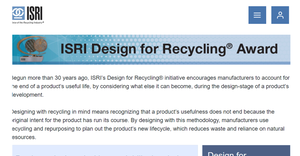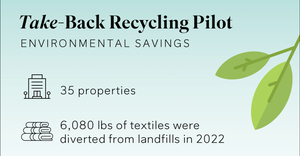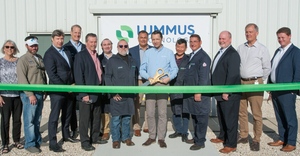As a veteran of cleanups following Hurricanes Katrina, Ike and Sandy, hazardous waste specialist Richard Dabal has witnessed the devastating effects of powerful wind and torrential rain. The latest “storm” the 62-year-old was tossed into was a health crisis of monumental proportions—the Ebola epidemic in West Africa.
Dabal, a physical scientist with the U.S. Army Corps of Engineers, returned to his office in New York City in early January after spending close to three months in Liberia. In mid-September, President Obama had announced a $750 million aid plan that included dispatching 3,000 U.S. troops.
As part of that U.S. government effort, Dabal and a team of 13 coworkers were tasked with scouting the entire country, which is slightly larger than Tennessee, via helicopters to find sites to construct emergency medical centers to treat Liberians with the deadly virus. Liberia was the ground zero of Ebola, with at least 4,117 recorded deaths, according to the World Health Organization.
Waste360 spoke with Dabal, a member of the Association of Hazardous Materials Professionals, about his experience overseas. He earned a degree in environmental science from the University of Wisconsin, Green Bay. Before joining the Army Corps 16 years ago, he worked in the private sector supervising the remediation of hazardous waste sites. Prior to that, he handled emergency response and remediation for the New Jersey Department of Environmental Protection.
Waste360: How many hospitals were needed?
Richard Dabal: Originally, we were scheduled to build 25 hospitals, or what the government called Ebola treatment units, that could accommodate 100 patients each. But that number fell to 10 or 12 because the rate of Ebola infections was dropping by the time we arrived in October. Each one could care for 75 patients.
Waste360: How were they designed?
Richard Dabal: We needed six or seven acres for each unit, so we had to clear and level the land. Two gigantic tents were set up on a concrete pad, one for confirmed Ebola cases and the other for potential Ebola cases. You could easily fit two tennis courts inside one of those tents. The surrounding support buildings included a transition zone where medical personnel put on and later removed the layers of protective clothing and gear required to care for patients.
Waste 360: What happened to the used clothing and gear?
Richard Dabal: Very little was reused because Ebola is so contagious. Only rubber overboots and eye shields such as goggles could be cleaned and recycled. Workers took off one layer at a time and everything was repeatedly hosed off and disinfected with pressurized cans of water and bleach. Hooded Tyvek suits, gloves, surgical masks, face shields, empty medicine containers and other trash were burned onsite in a portable incinerator fabricated in Liberia. Nothing was left but ash.
Waste 360: Was there much environmental oversight?
Richard Dabal: Certainly not like there is here. The bottom line is that the Environmental Protection Agency of Liberia did not have the manpower, knowledge or resources to handle this. Agency officials seemed concerned about the incinerators but nobody was testing for air quality. We can’t impose our standards on that type of place.
Waste 360: Who was assisting your Army Corps team of 13?
Richard Dabal: Our team stayed at a military base in Monrovia when we weren’t traveling to choose and prepare sites for the treatment units. An engineering construction company, Fluor, had been contracted to supervise construction. Fluor hired Liberians to do much of the construction. The 3,000 U.S. soldiers, stationed at five different Liberian bases, helped wherever they were needed. The troops did an exemplary job of following environmental regulations on the bases. For instance, they always used spill pads when refueling the helicopters.
Waste360: Liberians speak at least 16 indigenous languages. Did you need translators?
Richard Dabal: English is the official language, but it took several days for us to pick it up because the accent is so thick. That meant a steep learning curve on our part.
Waste360: What did you find especially frustrating?
Richard Dabal: It’s a Third World country so there’s no infrastructure. I don’t remember seeing a single fire hydrant when I was stationed in Monrovia, the capital city. I think they had been gleaned for the scrap metal. You have to take everything in, from toilet paper, Tyvek, plywood and 2-by-4s to drill rigs and 10-yard garbage containers. Yes, there might be garbage trucks but they’re pulsing, shaking and broken down.
Waste 360: What tool did you miss the most?
Richard Dabal: A drill rig. At each Ebola treatment unit, we had to drill 200 to 300 feet below ground to find a good water source. We had to rely on Liberian drillers to dig the wells. Guys show up in a beat up Chevy with a drill rig mounted on the back. It broke down every couple of hours so it took us two weeks to complete a job that would take about three days with the appropriate equipment.
Waste360: Was there an incident that highlighted how developed countries take technology for granted?
Richard Dabal: It was very difficult to find gravel that we needed for proper drainage when constructing walkways. Once, while I was using my fancy 21st century equipment to survey a site for a treatment unit, I noticed that 20 feet away there were 10 Liberian workers using sledgehammers to make gravel out of large stones.
Waste360: What was one of your diciest situations?
Richard Dabal: We needed to store shipping containers and our military leaders suggested covering a two-acre oil dump at the airport in Monrovia with soil. Over the years, that area had been filled with oil, oil filters, hydraulic fluid, liquid asphalt and other hazardous materials. I was able to improvise a soil-sampling kit that consisted of a sledgehammer, some steel pipe and several bottles of water. Results showed me that the soil would have acted like a sponge sopping up the oil oozing out of the ground. I wrote up a report recommending that we not touch it. They followed my advice.
Waste 360: Any memorable events you want to relay?
Richard Dabal: Liberia is a tropical country. It’s 90 degrees with 90 percent humidity most of the time, so the sweat is pouring off of you. Green mambas and black mambas are two of the many types of poisonous snakes there. Just as everybody here has a lawnmower, everybody in Liberia has a machete. Locals would kill the snakes, and take the meat home to cook it and eat it. We were eating MREs.
Waste360: In 2010 and 2011 you taught soldiers with the Afghan National Army how to maintain a base that the U.S. government built and turned over to them. How did this Liberian mission differ?
Richard Dabal: Afghanistan was a war zone and Liberia was a humanitarian mission. Between the latest round of a civil war that ended 12 years ago and the Ebola crisis, Liberia was hit with a one-two punch. The country is trying to develop but it’s going to be a very, very slow process. I think we left Liberia a little bit better than we found it because we basically built 10 to 12 small hospitals that the Liberians can use for whatever purposes they see fit.
About the Author(s)
You May Also Like


